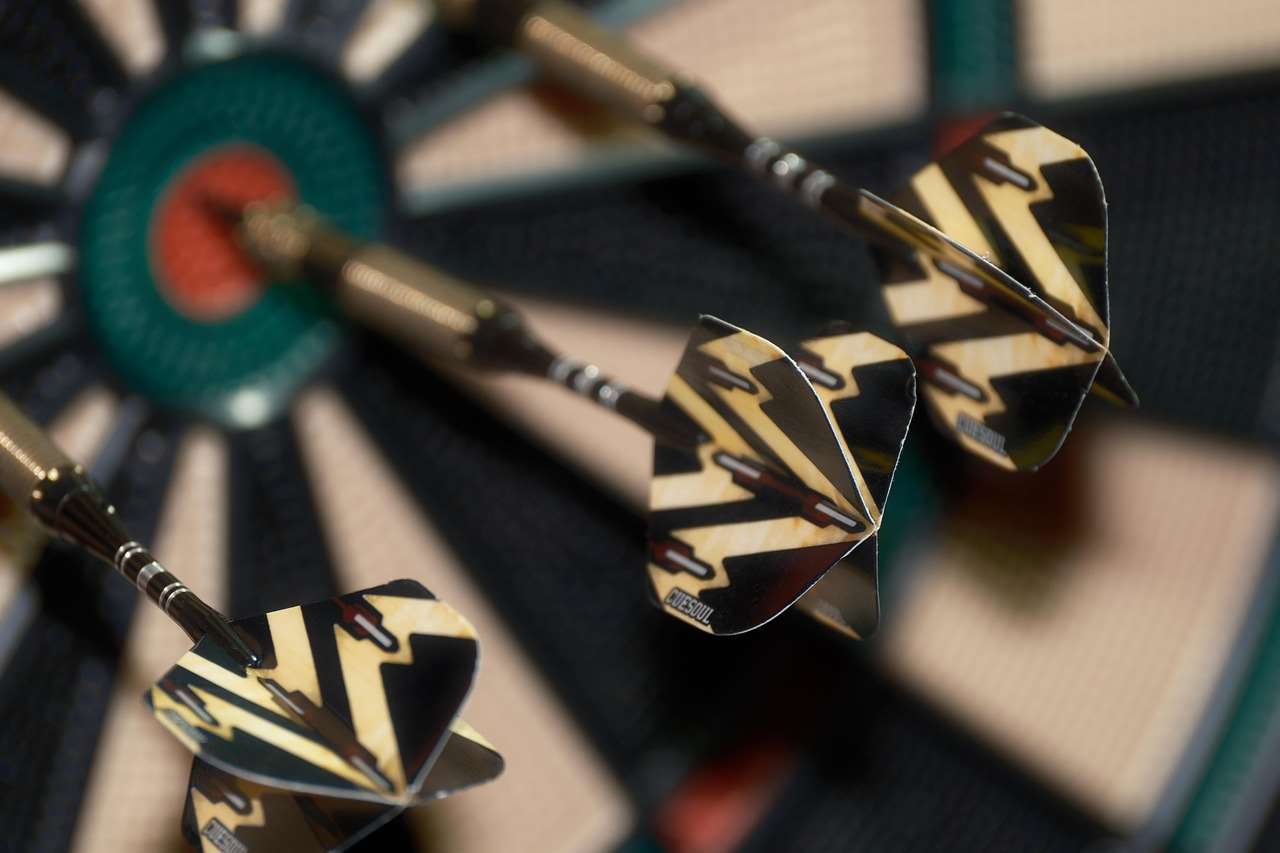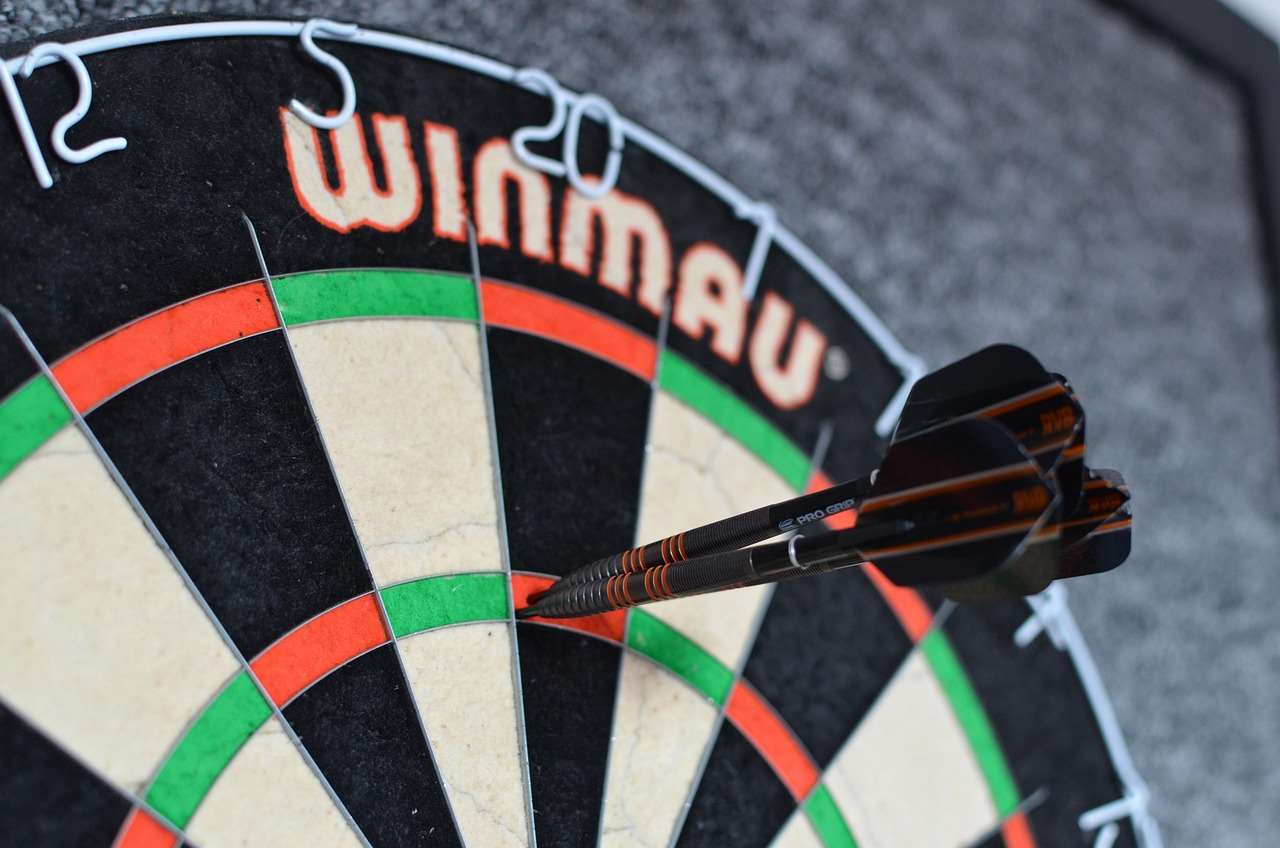Maintaining optimal weight is crucial for peak performance in darts, and effective weight management for darts involves a holistic approach encompassing diet, exercise, and mental well-being. This article will delve into practical strategies to help you achieve your ideal weight, improve your game, and prevent injuries.
⚠️ Still Using Pen & Paper (or a Chalkboard)?! ⚠️
Step into the future! The Dart Counter App handles all the scoring, suggests checkouts, and tracks your stats automatically. It's easier than you think!
Try the Smart Dart Counter App FREE!Ready for an upgrade? Click above!
Weight management for darts isn’t just about looking good; it’s about optimizing your physical capabilities for the game. Carrying excess weight can negatively impact your throwing technique, stamina, and overall performance. By focusing on a healthy lifestyle, you’ll improve your focus, reduce fatigue, and enhance your accuracy on the board.
Let’s explore how to make the necessary changes and become the best dart player you can be!
Understanding the Importance of Weight Management for Darts
The impact of weight on your dart game might seem subtle, but it’s far-reaching. Extra pounds can lead to reduced agility, affecting your ability to swiftly adjust your stance and throw. It can also increase stress on your joints, potentially leading to injuries. Maintaining a healthy weight improves your stamina, allowing you to maintain focus and accuracy over longer periods, particularly crucial during tournaments. Furthermore, a healthier weight contributes to better mental focus and concentration, enhancing your decision-making abilities during crucial game moments. Weight management is therefore an integral part of your overall darts fitness strategy.

This is why a comprehensive approach to weight management for darts is essential. It’s not merely about losing weight; it’s about improving your overall physical and mental condition. A well-structured plan will incorporate strategies for healthy eating, suitable exercise, and stress management, all aimed at enhancing your dart game.
Nutrition for Optimal Dart Performance
Dietary Guidelines for Dart Players
A balanced diet is the cornerstone of successful weight management for darts. Focus on consuming lean proteins, complex carbohydrates, and healthy fats. Lean proteins, like chicken breast, fish, and beans, help repair and build muscle, which is essential for consistent throwing. Complex carbohydrates, such as whole grains and brown rice, provide sustained energy release, preventing energy crashes during long games. Healthy fats, found in avocados, nuts, and olive oil, are crucial for hormone regulation and overall well-being. Limit processed foods, sugary drinks, and excessive alcohol consumption, as these contribute to weight gain and can impair your performance. Consider consulting a registered dietitian or sports nutritionist for personalized advice tailored to your needs.

Remember that proper hydration is just as crucial as your diet. Dehydration can lead to fatigue, muscle cramps, and decreased concentration, significantly hindering your game. Always drink plenty of water throughout the day, particularly during and after practice sessions and competitions.
Hydration Strategies for Dart Players
- Drink water throughout the day, not just when you feel thirsty.
- Carry a water bottle to your practice sessions and tournaments.
- Consider electrolyte drinks if you’re sweating heavily.
Exercise and Training for Darts
While darts itself is not a high-impact sport, dedicated physical training greatly complements weight management for darts and improves overall performance. Regular exercise helps to burn calories, increase your metabolic rate, and build muscle strength and endurance. This is where cross training for darts becomes invaluable.
Focus on exercises that improve core strength, stability, and shoulder flexibility. Ergonomics and dart performance are intrinsically linked; maintaining correct posture and throwing technique minimizes strain and improves accuracy. Activities like yoga, Pilates, and weight training can significantly benefit your game. You might also find that incorporating breathing exercises for stamina and endurance enhances your overall game stamina.

Remember to incorporate rest days into your training schedule to allow your body to recover and prevent injuries. Overtraining can be counterproductive, hindering your progress and potentially leading to burnout. Listen to your body and adjust your workout intensity based on how you feel.
Preventing Injuries
Dart injury prevention is crucial. Repetitive movements in darts can strain muscles and joints, especially if your technique is flawed. Maintaining correct posture, practicing regularly with a focus on proper technique, and ensuring your dartboard and environment are ergonomically optimized are essential. Incorporating dart injury prevention for short term strategies reduces your risk of injuries. Regular stretching and warm-up exercises before practice and games can help prevent injuries, improving your long-term game.
Proper Oche distance ergonomics are also key. Incorrect distance can strain your back and shoulders over time. Understanding and correctly practicing your throw, and regular ergonomics and dart performance reviews will vastly improve your game and reduce injury risk. For further advice on injury prevention, consider a dart injury prevention analysis by a professional.

And don’t forget the importance of rest. Adequate sleep allows your body to recover and rebuild, improving your performance and reducing the risk of injuries. Aim for 7-9 hours of quality sleep each night.
The Role of Mental Well-being in Weight Management and Dart Performance
Weight management for darts is not solely about physical health; your mental well-being plays a significant role. Stress and anxiety can lead to unhealthy eating habits and decreased motivation to exercise. Managing stress through techniques such as meditation, yoga, or spending time in nature can be beneficial. This also links to breathing exercises for cool down darts which help to manage your stress levels after an intense game or practice session.
Developing a positive mindset is essential. Set realistic goals for your weight loss journey and celebrate your achievements along the way. Remember that progress takes time, and consistency is key. Don’t get discouraged by setbacks; view them as learning opportunities and adjust your strategy as needed.
Furthermore, consider the effect of alcohol and dart consistency. Excessive alcohol consumption impacts your hand-eye coordination, judgment, and focus – all essential aspects of a good dart game. Moderation, or even abstinence, can greatly improve performance.
Similarly, understanding alcohol and dart leagues’ social culture is key to making healthy choices that support your overall weight management goals. It’s crucial to balance your social activities with a commitment to your weight management plan.

Finally, incorporate breathing for a powerful throw into your training. This technique not only improves your throw’s power but also helps to manage stress and improve your focus.
By taking a holistic approach to weight management for darts, you’ll not only improve your physical condition but also enhance your mental resilience and overall performance. Remember that consistency and a positive mindset are essential for long-term success. Combine proper nutrition, exercise, injury prevention, and mental well-being, and you’ll be well on your way to achieving your goals and becoming a better darts player.
For more information on maintaining a healthy lifestyle for darts players, check out our comprehensive guide on Darts Fitness Health.
Conclusion
Effective weight management for darts is a journey, not a race. By focusing on a balanced diet, regular exercise, injury prevention, and mental well-being, you can significantly improve your game. Remember that consistency and a positive mindset are crucial for success. Start today, and enjoy the benefits of a healthier, more focused, and more successful darts career!
“`
Hi, I’m Dieter, and I created Dartcounter (Dartcounterapp.com). My motivation wasn’t being a darts expert – quite the opposite! When I first started playing, I loved the game but found keeping accurate scores and tracking stats difficult and distracting.
I figured I couldn’t be the only one struggling with this. So, I decided to build a solution: an easy-to-use application that everyone, no matter their experience level, could use to manage scoring effortlessly.
My goal for Dartcounter was simple: let the app handle the numbers – the scoring, the averages, the stats, even checkout suggestions – so players could focus purely on their throw and enjoying the game. It began as a way to solve my own beginner’s problem, and I’m thrilled it has grown into a helpful tool for the wider darts community.